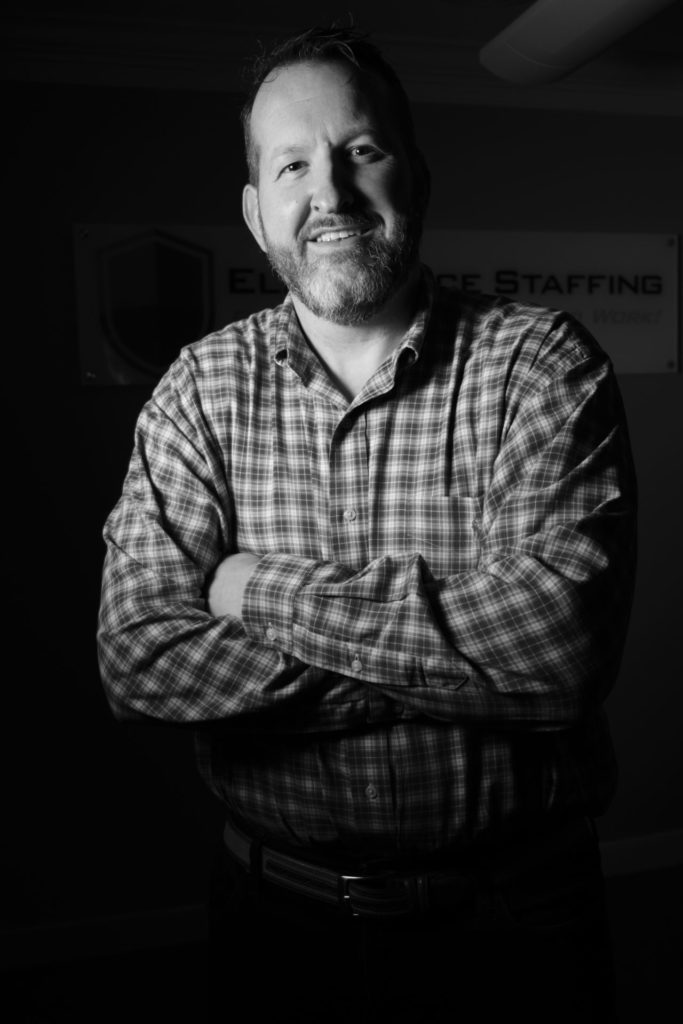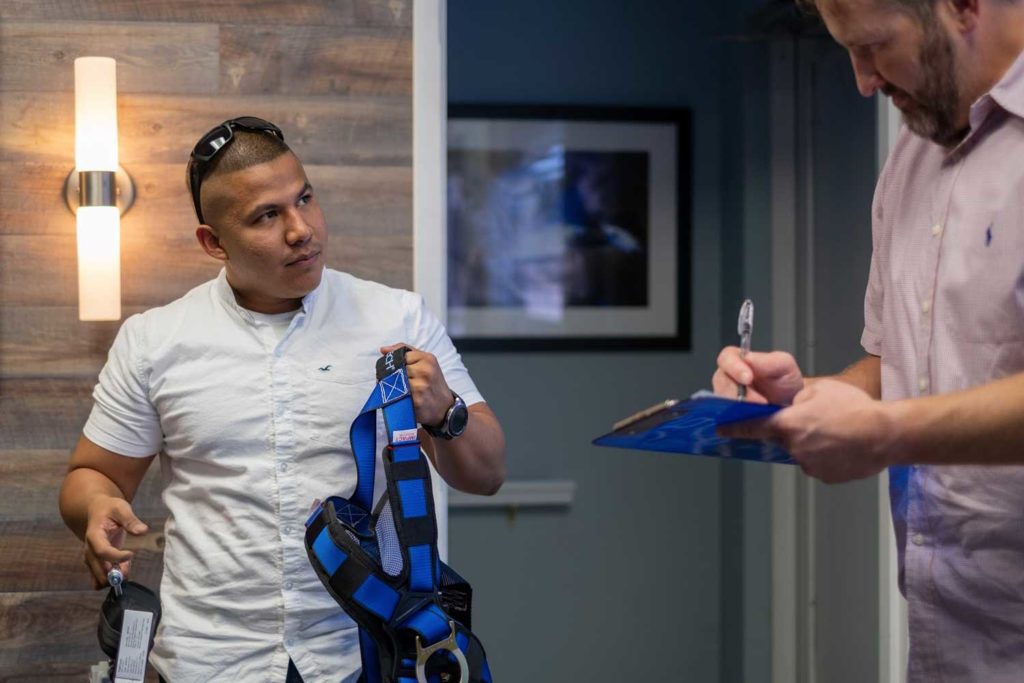Here at Elite Force Staffing, we have over 50 combined years of experience in the skilled trades staffing industry. One of our pros with a vast amount of knowledge and time spent in the industry, is our very own podcast host and Vice President of Elite Force Staffing, Brent Waters. With over 15 years in the industry, it’s safe to say he knows a thing or two. Here he speaks about the power of asking the right questions and what type details should be known before sending workers out to a job site.
This was pulled from the 2nd episode of our podcast, “Details, Details, Details”. If you’d prefer to listen to the full episode, check it out here. Enjoy!

Ask A Ton Of Questions
One of the things I’ve always done is asked a ton of questions. I’ve even had customers tell me that. But I’ve always explained to them that I’m setting expectations both for you and for our employee(s) because we’re trying to hit the home run ball as often as we possibly can.
Whether it’s one person, five people, 30 people, 40 people or whatever number of people the customer needs. We want to put a round peg in a round hole as often as we possibly can. To me, the way you do that is by sorting out all these different variables associated with the job.
And depending on the customer, if they’re a big staffing user or not, this can be more of an education process.
I’ve been amazed at how many times I’ve uncovered something during one of those conversations that the client hadn’t really even thought of. The client comes back and says “hey you know, that’s a good point. It’s a good thing we talked about that to you. Come to think of it we probably aren’t ready for these people yet.”
Or maybe an administrative person calls in from an office and says “hey I talked to the owner of the company, he’s looking for five helpers.” But maybe the person actually wants journeymen and it’s miscommunicated. That has happened before.
You get guys/girls out on a project and somebody gives them the prints. They take a look and then display a look of panic. Saying “hey you know I’m a helper right? I can’t read these prints.”
So once again we’re setting expectations and we’re trying to make sure that we’ve got a good fit for our customer and for the worker(s).
There are a million places where tradesmen staffing projects can go wrong.
It’s all about knowing the right questions to ask and which details need to be known.
Details, Details, Details
Which details need to be known and what kind of questions should be asked? This can get a bit granular but it all helps narrow down the job/project and helps accurately place the right worker.
Because there is nothing worse than getting your people out on the job and for some reason having to turn around and say “Hey guys you all just have to head home. We’ll try to restart this tomorrow.” It’s a bad feeling for the customer and it’s a bad feeling for our worker who just wants to go out and work and get paid.
Circling back around here in case it’s not already obvious. But it’s all about the details.
The Duties
First and foremost, the most important detail to me is, the duties.
If a client needs a carpenter, what is this person going to be doing every day?
Is this commercial work? Is it residential? Is it industrial?

You really got to dig in and find out. It’s not simply just carpentry work.
Is it rough work? Is it formwork? Is it trim work? Are they doing firewall blocking? Is it punch list work? Is it metal stud framing? Is it drywall? Depending on what state the work is in, some people might consider a carpenter to be a drywall person.
Is our person working alone? Is our person running other folks? Are they in a supervisory role? How many people are they overseeing? Who is our person reporting to?
It all boils down to what this person is going to be doing the majority of the day. We have to make sure that we have the most qualified person out there.
Tools
Tools is another one that is huge. Especially if it’s a new customer that hasn’t done a lot of work with unskilled or skilled trade workers.
What kind of tools does this person need? If it’s bigger type tools that our people typically aren’t going to have like a ladder, miter box, or some nailers and a compressor. Are those things going to be on the job?
Does our worker have those tools? Is there power on the job so that they can charge batteries? Is there a place for that? Is there a job box where they can keep their tools? If they’re parking blocks away from where the job is, do they have to lug their tools every day to the job?
PPE/Safety
PPE is next up. This is where guys or gals get turned away so easily.
If it’s a subcontractor that you’re working with. Does the general contractor have some PPE requirement above and beyond what is typical? Do the workers need high vis vests? Do they have to have long sleeves?
Obviously if it’s commercial/industrial, they’re gonna have a hard hat, safety glasses, and steel-toed boots. But are there some kind of tear resistant gloves that they need? What about side shields for their glasses?
Once again it seems like a small thing but I can’t tell you how many times I’ve walked out to a job and guys get turned away because of this. We have to know that everybody understands what they need to have and make sure they’ve got it when they get out there.
Jobsite Parking/Address
Small but important detail here. If we’re not going to be meeting them, what’s parking like? What is the address for parking?
When I first started in this tradesman industry, people didn’t have cell phones. It was basically meet me at 7-11 here and follow me to the job site. If you get lost, pull over and call me from a pay phone, but just don’t go home.

Now we can basically send all the information to the people that they need. But some of these addresses are new addresses for massive projects. Does the Google map address take you to the job or does it take you to a big field? Is it tricky to find the place? If it is, is there a better way to go about getting the people there?
Is there parking available on the job site? Is it paid parking? If it’s paid parking, who’s covering that? These are the kinds of things that hit you at 6:30am in the morning when you’re out on a job site, so it’s very important to figure out beforehand.
Hours Of The Job
Next up, the hours of the job. Are we working 7-3:30? Are we working four tens? Are we doing four tens and an eight? Are we working weekends?
I’ve had projects that start on a Thursday and we send the people out Thursday and Friday.
And the customer says “Hey, you’re coming back tomorrow and Sunday right?”
Tradesmen: “Oh I’ve got to watch the kids over the weekend. I didn’t know I needed to work Saturday and Sunday.”
Customer: “Well I really need you out here and if you can’t be out here those days I really can’t use you.”
That stuff happens, so we gotta make sure that once again we’re setting expectations and everybody knows what’s expected of them.
Other Details
Depending on the project, like if it’s a large general contractor. Is there a safety orientation? What days of the week do they have the safety orientation?
You get out there on a Wednesday with 10 electricians and find out that the next safety orientation is Monday and they can’t start on the job. That’s something that maybe the subcontractor might not even think about.
What about background checks and drug tests? Is the client looking for a long-term fit?
Once again these are all very important details to know regarding a project and/or jobsite. Ask the right questions. Know the facts. Know all the details.
Well said Brent! Got any questions or looking for skilled trades staffing, shoot us a message here
Listen to the full podcast episode here:
Or check out the full podcast episode below.
